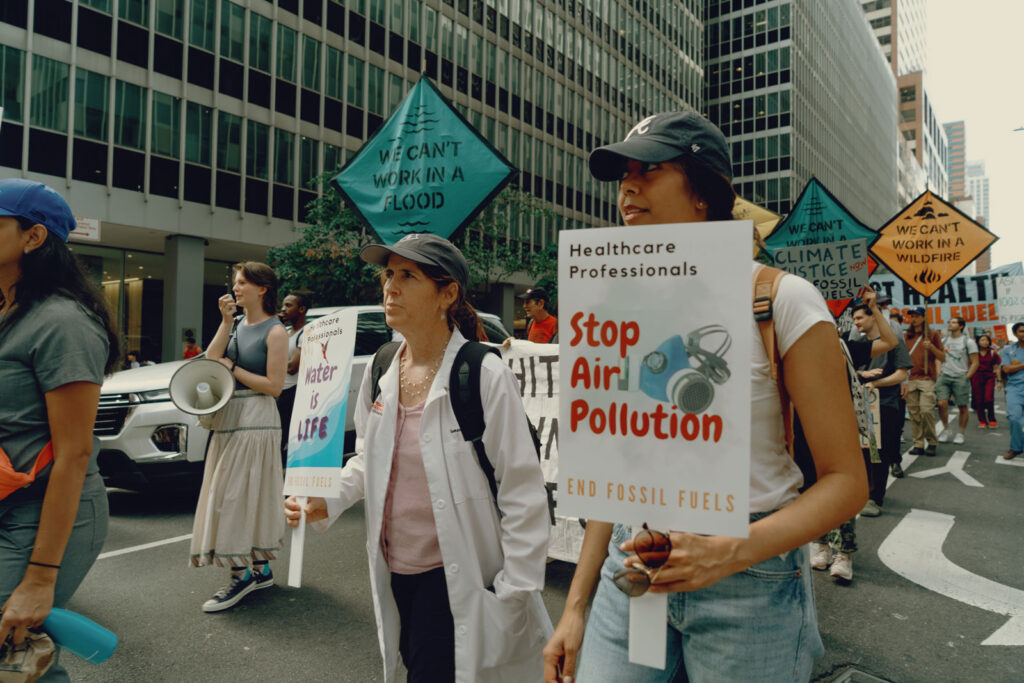Three dozen Christian organisations and institutions from across the world — including dioceses from the Church of England — announced their divestment from fossil fuels today and urged leaders to take greater action on climate change ahead of major global summits this year.
Scheduled for June, leaders of the G7 nations will meet in the UK and environmentalists hope climate will be a priority. Meanwhile, Glasgow will host the annual UN climate conference, COP26, in November.
The faith communities come from five continents and eleven countries including Brazil, India, Spain, and the UK. Together, they hope their divestments will signal the urgent need for governments’ pandemic economic recovery plans to invest in a more just, greener future.
Tomás Insua, one of the organisers of the announcement and executive director of the Global Catholic Climate Movement, said he hoped it would inspire “many others to follow suit.”
Institutions involved in the May 17 announcement include the Diocese of Bristol and the Diocese of Oxford, the first Church of England dioceses to announce their divestment from fossil fuels. The Church in Wales, which has more than £700 million of assets under management, is also part of the group.
Other members include seven Catholic dioceses in the UK and Ireland, and representatives of institutions belonging to other major denominations, including Anglican, Baptist, Presbyterian, and Methodist Churches.
The Diocese of Bristol and Oxford were highlighted in a DeSmog and New Internationalist Investigation last year which found that the Church of England’s dioceses — responsible for supervising the work of its churches across 42 different regions of the country — had a combined £18 million invested in fossil fuel companies.
Today’s announcement follows the decision of the Methodist Church in the UK last month to fully divest from fossil fuels, selling around £23 million worth of stakes in oil companies Shell and Equinor over the companies’ “inadequate” climate plans.
Faith communities have been a major driver of the fossil fuel divestment movement globally, accounting for more than one third of over 1,300 divestment commitments made to-date, according to the Go Fossil Free divestment tracker.
Divestment involves selling shares in oil, gas, and coal companies and advocates say it is a more effective strategy for institutions to effect change than influencing company policies through engagement and the use of shareholder votes.
Insua said: “It’s heartening to see how Catholic institutions are implementing the Vatican’s fossil fuel divestment guidelines, in tandem with so many other faith-based institutions. I hope it inspires many others to follow suit.”
In guidance issued last year, the Vatican endorsed divestment efforts, calling on Catholics to “shun” fossil fuel companies and other industries that cause harm to the environment.
Rt Revd Vivienne Faull, the Bishop of Bristol and head of the Church of England Diocese of Bristol, said: “Care for creation is a core mark of mission for the Church, and this is an important step towards realising our net zero carbon aims.”
The Church of England’s national governing body, the General Synod, voted in 2018 to divest from companies that were not on track to meet global climate goals by 2023, and last year agreed to a net zero by 2030 target. However, campaigners have criticised the Church’s divestment plans as inadequate and civil society leaders have condemned the Church’s decision to support Shell’s energy transition plan — which foresees a 20 percent rise in production of fossil gas — at the fossil fuel company’s Annual General Meeting (AGM) this week.
Rachel Mander, a member of the UK’s Young Christian Climate Network, said: “This announcement is great news and provides a sorry contrast with the Church of England pensions board who are voting in favour of a motion at Shell tomorrow. We celebrate all those working for change and action, such as the many UK churches who are involved with the Relay to COP26, and churches around the world who have been vocal for a number of decades on the need for action.”
James Buchanan, campaign manager of the Bright Now divestment campaign at Christian climate charity, Operation Noah, said he hopes today’s divestment announcement will increase pressure on governments ahead of major global summits later this year.
“As the UK prepares to host the G7 and COP26 this year, it is hugely encouraging to see so many Churches and faith groups announcing their divestment from fossil fuels,” Buchanan said. “We urge governments around the world to follow their lead by ending support for fossil fuels and investing in the clean technologies of the future.”
Subscribe to our newsletter
Stay up to date with DeSmog news and alerts







